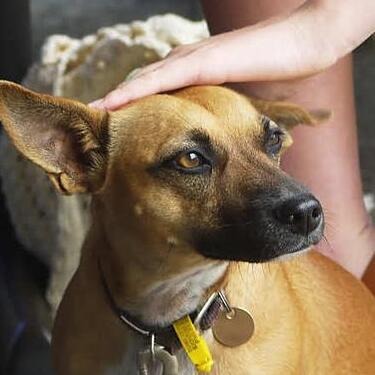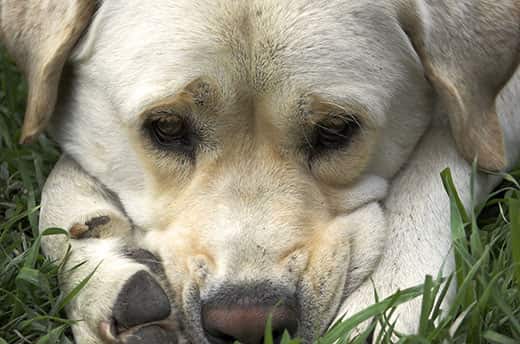
-
Find the right food for your petTake this quiz to see which food may be the best for your furry friend.Find the right food for your petTake this quiz to see which food may be the best for your furry friend.Featured products
 Hill's Science Diet Adult Oral Care Chicken, Brown Rice & Barley Recipe Dog Food
Hill's Science Diet Adult Oral Care Chicken, Brown Rice & Barley Recipe Dog FoodClinically proven kibble technology to reduce plaque & tartar build-up
Shop Now Adult Small & Mini Lamb Meal & Brown Rice Recipe Dog Food
Adult Small & Mini Lamb Meal & Brown Rice Recipe Dog FoodFor the faster metabolism of Small & Mini dogs
Shop Now Adult 7+ Small & Mini Chicken & Brown Rice Recipe Dog Food
Adult 7+ Small & Mini Chicken & Brown Rice Recipe Dog FoodFor the unique nutritional needs of mature Small & Mini dogs
Shop NowFeatured products Adult Indoor Chicken Recipe Cat Food
Adult Indoor Chicken Recipe Cat FoodSupports energy level and beautiful fur in indoor cats
Shop Now Adult Urinary Hairball Control Chicken & Rice Recipe Cat Food
Adult Urinary Hairball Control Chicken & Rice Recipe Cat FoodActively supports the health of the whole urinary system
Shop Now Hill's Science Diet Adult Sensitive Stomach & Skin Dog Food
Hill's Science Diet Adult Sensitive Stomach & Skin Dog FoodHighly digestible recipe, gentle on stomachs. Nourishes skin & promotes a lustrous coat
Shop Now -
Featured articles
 My Pet Ate a Lizard — What Should I Do?
My Pet Ate a Lizard — What Should I Do?Learn what to do if your pet eats a lizard, including whether they can be toxic and symptoms to keep an eye on when they've swallowed one.
Read More Easy DIY Dog & Cat Toys: Nine of Our Favorites
Easy DIY Dog & Cat Toys: Nine of Our FavoritesBrowse this comprehensive guide for several of our favorite DIY dog and cat toys that are sure to put a little pep in your pet's step.
Read More 15 Pet-Friendly Cities Ideal for a US Road Trip
15 Pet-Friendly Cities Ideal for a US Road TripCheck out our list of pet-friendly U.S. cities that are excellent travel options, offering off-leash dog parks and pet-friendly restaurants & hotels.
Read More -

When someone you love passes away, you may find yourself needing to rehome their dog in addition to that loved one's belongings. Adding a grieving dog to your family may seem overwhelming, but there are a few simple steps you can take to help you and the dog adjust to life after death.
The First Few Days
The first few days after a loved one dies are the most difficult for humans and also for dogs. Like humans, not all dogs grieve the same way. As one might expect, after the death of their pet parent, dogs may withdraw and refuse to eat. Although most people may experience a grieving dog interacting less and not eating, other unexpected behaviors sometimes happen, says PetHelpful. It's not uncommon for these dogs to become irritable, while others may become nervous or anxious. Unfortunately, rehoming a dog has to happen immediately, and it can be difficult to know the best way to help the dog grieve while also adjusting to a new home. The biggest thing to keep in mind for the first few days is to keep the dog on the same routine as much as possible. Use the same leash, food, food bowls, bedding, etc., and keep to the same time routine for eating, playing and sleeping. Consistency is key to successfully rehoming a dog. Dogs are very intuitive and can sense that something has changed. Reassuring them that things will be OK can go a long way in helping them cope. Showing them the same amount of love as their previous parents did can help them get through the grieving process a little easier — you might even find it helps you cope a little easier too.

Preparing Others in Your Household
The grieving dog is not the only one who needs help during the transition. Your family members and other pets may feel overwhelmed with the sudden addition. One way to help your family adjust is by making them aware of the new dog's schedule and typical behaviors. As a whole family, sit down and discuss the adjustments everyone will need to make, and create a plan of how you will all work together to support each other, your pets and the new dog. Creating a team mindset early on may help everyone feel supported, and your current and new pets may feel a sense of calm and peace. It is also important to have your family members help you look for signs of depression that may last longer than a week or two, says PetMD. Early on, or even a week or two after, you may need to separate your current pets and the new pet at least once a day until everyone fully adjusts. Some pets may just need alone time. In most cases, everyone adjusts within a month.
One other thing to watch for, in all the pets, is negative and positive behavior. Be sure to reinforce all positive behaviors of all the pets in the house, and try to ignore negative behaviors. It is very common for pets to "act out" when they are anxious or stressed. The death of a loved one, a new addition to your household, or a change in routine are all things that can make a dog feel stressed out. If you ignore the negative behaviors for a day or two and they don't go away, be sure to get your dog out for more exercise or get some new play toys. It is important to keep your dog busy and distracted as much as possible the first week or two after the death of a loved one. While keeping your new pup busy, also continue to keep to his old routine as much as possible, and you will likely see the negative behaviors stop.


Tasty Tips
What to Do When You Can't Keep the Dog
The loss of a loved one is difficult and can create considerable strain on your life as is, and bringing home a new dog is not always possible. Whether you live in an apartment that does not allow pets, have other pets that do not get along with dogs, have children that are allergic, or a number of other reasons, you may not be able to provide the care for your loved one's dog. If this is the case and you are in charge of their estate, including their pup, it is vital that you take careful consideration to the dog's overall well-being. If you cannot bring the dog into your home, do not feel bad; it's not always possible, but do your best to try and find him a good home. Reach out to other family members or friends and ask if they can take on the new responsibility. If you have had interactions with this dog, you can speak to how good of a dog he is and why someone would love giving him a new home. If you can't find any takers, reach out to your local veterinary offices, animal shelters and dog advocacy groups. Through a strong network of people, you are likely to find a good home for this faithful friend.
Rehoming a dog is never easy, especially if you have made a connection with him over time, but it is best to think about the dog's overall well-being. If you cannot provide a loving home and give him the time, love and care that he needs, you might have to find him a new home elsewhere.
Happily Ever After
It may seem impossible to live happily ever after when someone you love is gone. However, by keeping a routine, keeping active and finding support from one another, you and your dogs (old and new) can live a peaceful life; a life that honors the one that has passed on. Finally, if you are reading this article, we want to offer our condolences for your loss. We know it is never easy to say goodbye. If you need additional advice on how to provide care for a new dog brought into your life through loss, do not hesitate to send us a message on our Facebook page. If nothing else, we're willing to listen and provide some comforting words in your time of transition. While it can be difficult to move on, you might just find out that the love of a good dog can be the source of comfort you need.


Chrissie Klinger is an educator, writer and mother of two children, three dogs and three cats. Her dog Jake loves sitting on her lap every chance he gets! She enjoys living an active and eco-friendly lifestyle in rural Pennsylvania.
Related products

For the unique nutritional needs of mature Small & Mini dogs

Clinically proven kibble technology to reduce plaque & tartar build-up

Improves everyday ability to get up & go

For the faster metabolism of Small & Mini dogs
Related articles

Discover how the field of dog science is giving us more and more insights into the inner workings of our furry best friends.

Learn basic steps & precautions for treating a cut on your dog, including what you can put on the cut, and when you should take them to the vet.

Your dog's coat and skin are a big part of your dog's overall health. Ensure you keep your dog's coat healthy, by following these simple tips.

Understand the role that Omega-6 and Omega-3 fatty acids play in your dog's overall health, and how you can ensure they are getting enough.

Put your dog on a diet without them knowing
Our low calorie formula helps you control your dog's weight. It's packed with high-quality protein for building lean muscles, and made with purposeful ingredients for a flavorful, nutritious meal. Clinically proven antioxidants, Vitamin C+E, help promote a healthy immune system.
Put your dog on a diet without them knowing
Our low calorie formula helps you control your dog's weight. It's packed with high-quality protein for building lean muscles, and made with purposeful ingredients for a flavorful, nutritious meal. Clinically proven antioxidants, Vitamin C+E, help promote a healthy immune system.

